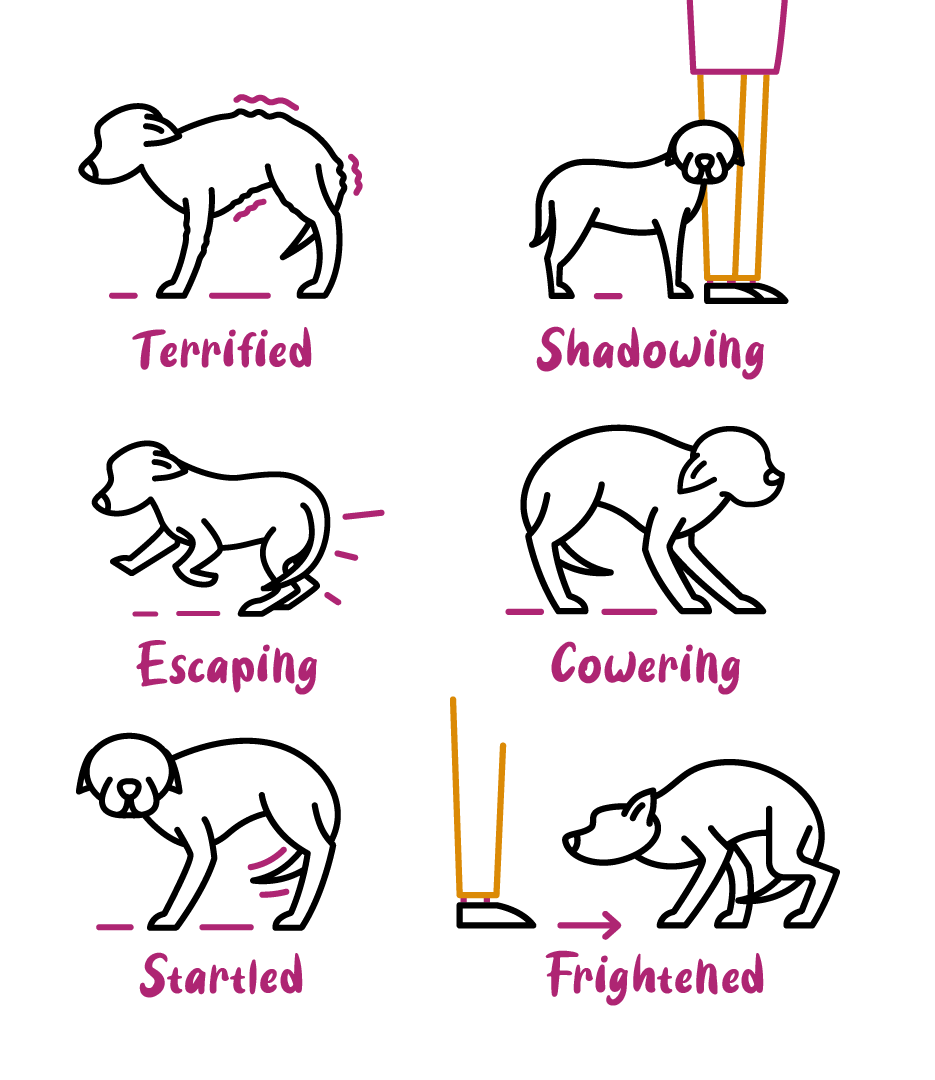Walking Anxious Dogs in Aberdeenshire
Walking an anxious dog can be challenging, but with patience and the right approach, you can help your dog become more comfortable and enjoy their walks.


Gradual Desensitisation: If your dog is extremely anxious about walks, start by gradually desensitizing them to the idea of going outside. Begin with short, calm walks around your yard or even just to the front door. Gradually increase the distance and duration of these walks as your dog becomes more comfortable.
Use Positive Reinforcement: Reward your dog with treats, praise, and affection for calm behavior during walks. Treats can be a powerful motivator for anxious dogs and help create positive associations with being outside.
Choose Quiet Routes: Avoid busy streets and crowded areas, especially in the beginning. Opt for quiet, less stimulating routes where your dog is less likely to encounter triggers that make them anxious.
Walk During Quiet Times: Try walking during times when there are fewer people and dogs around, such as early in the morning or late at night. This can help reduce the stress of encountering other animals or people.
Use a Comfortable Harness: Consider using a harness that fits comfortably and securely on your dog. A harness can provide better control and reduce the risk of your dog slipping out of their collar if they become fearful.
Desensitise to Gear: Some dogs get anxious when they see their leash or harness because they associate them with stressful situations like vet visits. Practice putting on the leash and harness at home without actually going for a walk to break this association.
Take Short Walks: Keep initial walks short and gradually extend them as your dog becomes more comfortable. Focus on quality rather than quantity.
Be Patient: If your dog freezes, pulls, or tries to turn back during a walk, be patient. Allow them to stop and assess the situation, and then encourage them forward with gentle reassurance and treats.
Observe Triggers: Pay attention to what triggers your dog’s anxiety during walks. It might be specific sounds, people, other dogs, or even certain objects. Understanding these triggers can help you avoid them or work on desensitization.
Consult a Professional: If your dog’s anxiety is severe and persistent, consider seeking help from a professional dog trainer or behaviorist who specializes in anxiety and fear-related issues. They can provide personalized guidance and training techniques.
Stay Calm: Dogs can pick up on your emotions, so stay calm and relaxed during walks. Your own anxiety or frustration can worsen your dog’s anxiety.
Exercise at Home: In addition to walks, engage your dog in mental and physical exercise at home. Puzzle toys, training sessions, and playtime in the yard can help burn off excess energy and reduce anxiety.

Get in Touch
Our professional dog walkers in Aberdeenshire provide a friendly professional service. Our hand selected dog walkers have extensive experience not only in dog walking but in many other aspects of canine care, providing peace of mind for you and a safe environment for your pet whilst walking.
Please take a look around our website and feel free to contact us with any questions, we are always happy to discuss your requirements and put you in touch with the best dog walking company for your fur baby.
